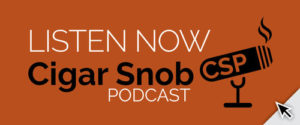A new report by the National Academies of Sciences, Engineering, and Medicine gives reason for optimism.
It took 12 months, over a dozen meetings and tens of thousands of pages of research to pore over. But by the time science and academe had its way with premium cigars, it was discovered that – shocker – there is scant evidence that the tobacco folks enjoy in the local cigar lounge causes deadly damage to the average smoker.
That doesn’t mean that the 14-member panel assembled last year by the National Academies of Sciences, Engineering, and Medicine thinks the federal government should back off its quest to further regulate premiums.
Among the nine recommendations made in a 500-page report released in March is that the government needs to include premium cigars in tobacco use surveys, develop sales reports on premiums, and fund research to determine how premium purveyors conduct their marketing and advertising.
The reported research also said that the inhaling of cigars should be examined, but that cigar smokers who have smoked cigarettes in the past have a greater tendency to ingest damaging amounts of smoke.
It also differentiated premiums from other cigars.
“There is strongly suggestive evidence that health consequences of premium cigar smoking overall are likely to be less than those smoking other types of cigars because the majority of premium cigar smokers are non-daily or occasional users and because they are less likely to inhale the smoke,” the researchers found.”
The committee was created at the behest of the U.S. Food and Drug Administration and the National Institutes of Health to study the health effects of premium cigars.
The panel members waded through existing research while also hearing comments from health sources and cigar industry players. Yet it found a dearth of data specific to premium cigars, which it determined are smoked by 1% of the U.S. population.
“Much of the information we had comes from the smoking of the little cigars and cigarillos,” said Steven Teutsch, chair of the committee that wrote the report and adjunct professor at the Fielding School of Public Health, University of California, Los Angeles.
The committee found studies on how cigars are smoked, including inhalation habits, but “most of that information comes from cigars in general, not from premium cigars specifically,” said Teutsch, a former officer with the Centers for Disease Control and Prevention.
The panel also found that non-daily use of cigars did not pose noteworthy health risks. Similarly, there was also not enough evidence to chronicle the damage by premium cigars on young adults, who are considered highly at risk for tobacco abuse by the government.
But the panel, at this point, does not advise onerous oversight of the industry. And perhaps better, it couldn’t find the ‘there’ there in the federal effort to implement more costly regulation on the premium industry.
“This is much better than I thought it was going to be,” said Drew Newman, general counsel for J.C. Newman Cigar Co., who spoke to the committee as it began its research.
Newman called the report “fair and thorough” and noted that the study verified numerous points the premium industry has made in legal filings and testimony over the last several years.
“We know there is no significant use by minors, and that there is not the same incidence of disease by premium cigar smokers,” Newman said, two points confirmed in the report.
The study also noted the difficulty of testing the smoke in large cigars, one of the mandates the Food and Drug Administration had sought to implement before a judge halted its pursuit in summer of 2020.
“We have talked about how expensive it is to go through FDA procedures and one of the big costs is testing,” Newman said. “Now the NAS says there is no way to test the smoke in large cigars. They are saying how frustrating it is as scientists, which supports our contention. It is hard to do.”
The study was commissioned by the National Institutes of Health and the FDA, which in 2016 had its authority extended to regulate all tobacco products, including premium cigars.
The last tobacco study to include premium cigars, at least peripherally, was done in 1998 by the NIH. This study was called for to get a more current understanding of the health impact of premium cigars.
“It was unfortunate that the research in 1998 called for more work to be done, but that was never conducted,” Teutsch said. “So the information that we’d like to have was pretty limited.”
The FDA, though, has been gearing up for a larger regulatory role in tobacco of all kinds. Its tobacco regulation department has grown 40 percent since 2015 and is now in full hire mode.
“We have hired hundreds of employees in the last year and expect this hiring surge to continue for at least another 2-3 years,” the agency’s Center for Tobacco Products announced last year.
The agency wants to hire chemists, physicians, and analysts, with future openings that include engineers and toxicologists. Since taking over the reins of tobacco regulation, the FDA has added premium cigars along with e-cigarettes, flavored cigars, pipe tobacco, hookahs, and menthol cigarettes to its hit list.
Much of today’s regulatory concern with premium cigars deals with underage smoking. Yet there is no evidence that minors are smoking premiums.
Of the 4,452 citations issued by the FDA for alleged violations of underage sales between August 2019 and August 2021, over 90 percent were issued to convenience stores, liquor hubs and other unspecialized retailers.
Less than 20 went to cigar stores with humidors, which deal in high-end premium cigars.
t’s not a report that will get the feds to back off, as it advises more examination of premium smoking be done.
“I’d like to think that the FDA will be taking this report seriously,” Newman said. “If the FDA chooses to ignore the science, though, we can show this report to a judge. We can also take this to Capitol Hill,” where lawmakers can also consider legislation that would protect the premium cigar industry.
“It’s one thing for me to testify on premium cigars,” Newman said. “But another for a scientific panel to report on it.”
While most in the cigar industry felt the panel was a gathering of anti-tobacco activists, Teutsch said he knows people who indulge in premium cigars. As for his own habits?
“I don’t smoke, but I did enjoy a pipe in my salad days,” he said.




